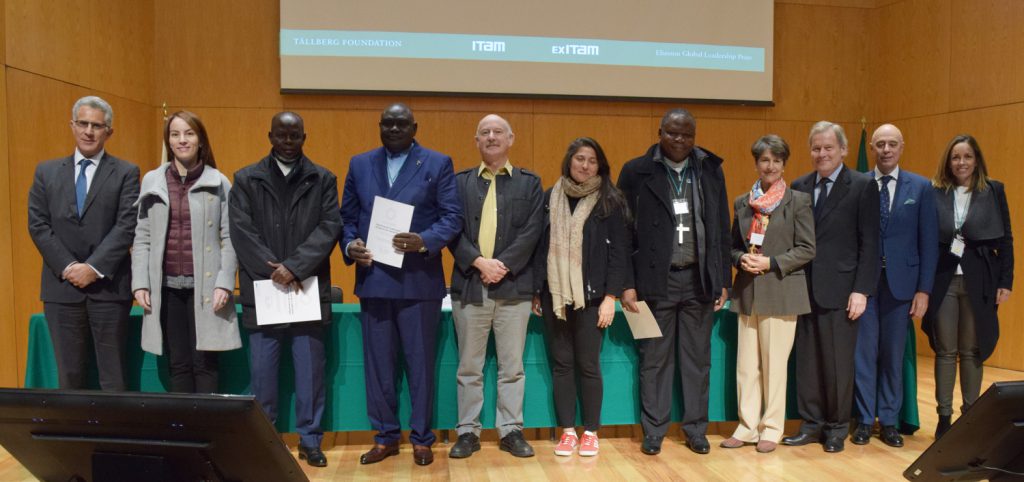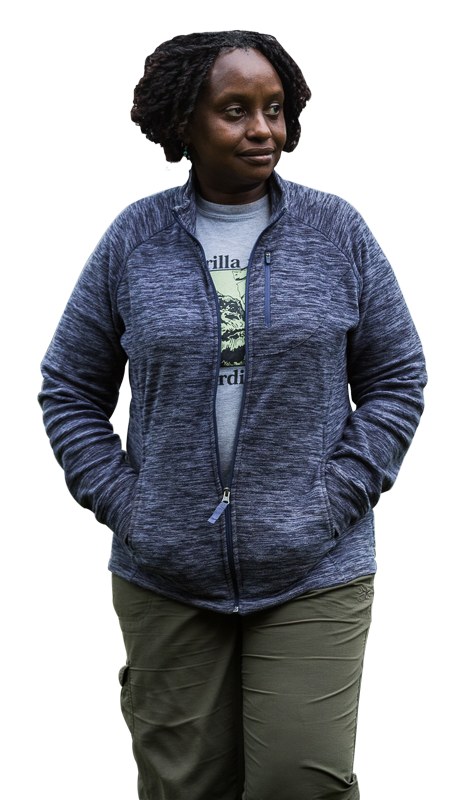Conventional wisdom is that great leadership is in short supply today, according to Tällberg Foundation chairman Alan Stoga.
“Too many countries, companies, and institutions are badly served by leaders who lack the vision, imagination, and moral compass that our times demand.
But I think we spend too much time talking about the bad, and ignore the good, even great, leaders who are working to change the world for the better.”
Tällberg-SNF-Eliasson Global Leadership Prize Winners speak on leadership to change the world
The Winners of the 2018 Tällberg-SNF-Eliasson Global Leadership Prize talked about their work and leadership at the ceremony and workshop held in Mexico City at ITAM (a private, secular, non-profit Mexican institution of higher education).
Initially the Winners would seem to have little in common; a filmmaker, a neuroscientist and three clerics, but at the end of the day, what they do is very similar. They are all great leaders who are working to change the world for the better.
The day-long seminar, a partnership between the Tällberg Foundation and ITAM, provided a firm corrective. First the Oscar-winning Pakistani filmmaker Sharmeen Obaid-Chinoy and the pioneering neuroscientist Rafael Yuste took the stage.
Different jobs and leadership but many common points
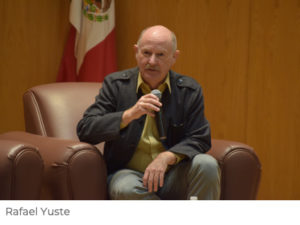
On initial glance they made an unlikely pair. But, as Yuste noted, while he and Obaid-Chinoy would seem to have little in common, “What we do is, at the end of the day, very similar.”
Urging government support of both fields, Yuste referred to scientists and artists as the “scouts” of society:
“We imagine things, expand the mental world.” He and Obaid-Chinoy talked about the call to be risk-takers, and the opposition they’ve each faced.
For the filmmaker, whose documentaries challenge entrenched injustice, the threats are often to her safety.
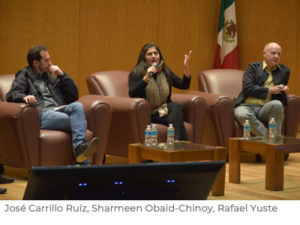
For the scientist, it has been intellectual abuse; the reaction of colleagues to his brain-mapping initiative was “No, it’s impossible — you’re silly.”
For both, the solution lay in persistence — and a moral imperative to help other people.
Yuste thanked his Spanish heritage (and his mother, “who thinks whatever I do is perfect”) for the fact that he is “obstinate to the point of foolishness.”
Obaid-Chinoy shared her mantra: “If a door has not opened for you, it’s because you haven’t kicked it hard enough.”
The union of different leaders to improve the world
They were followed by an equally inspiring session with the three clerics of the Interfaith Peace Platform of the Central African Republic.
After Imam Omar Kobine Layama laid out the problem their nation faced — a war over resources that had co-opted religion as a weapon — the Rev. Nicolas Guérékoyame-Gbangou explained their leadership strategy.
He and his colleagues built trust by travelling together through the countryside, speaking and listening. In towns and villages, interfaith meetings helped bring forth shared truths, as well as shared suffering.
People from one religion don’t usually hear from the clerics of another faith, but as Archbishop Dieudonné Nzapalainga pointed out, “All are our children.”
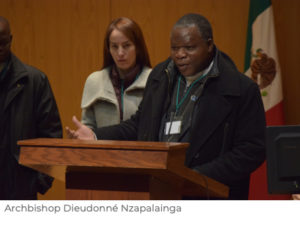
The five leaders seemed keenly aware that a new generation was listening.
Imam Omar described the Interfaith Peace Platform’s program for training young people to continue their work, while Obaid-Chinoy and Yuste challenged rising leaders to dream big.
Obaid-Chinoy reminded the participants of the luck that determines who is given a chance to learn and grow, and who is not.
Yuste pointed out that those who have opportunities have a responsibility to carry society forward on their shoulders.

